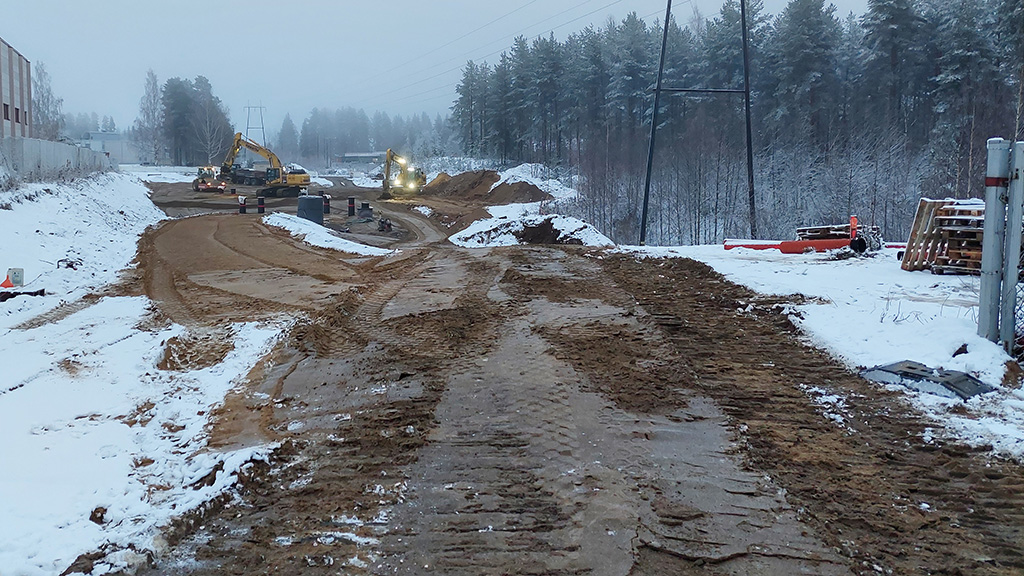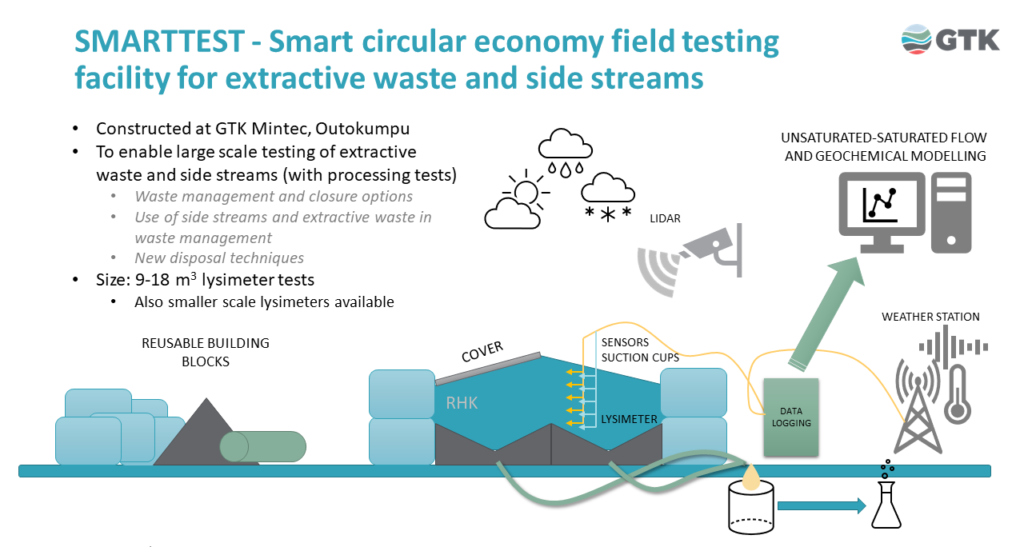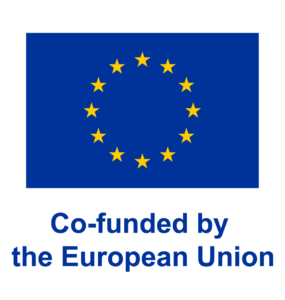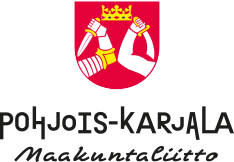Smart Field-Testing Platform and Concept Improves Management of the Long-Term Behaviour of Extractive Waste
The environmental impacts of extractive waste are prevented through various environmental protection structures, which should function for a long time. The SMARTTEST project will develop a field-testing facility and concept, with which circular economy and extractive waste management solutions can be investigated in long-term field tests already during the mineral process development phase of a mine. The project will be implemented in connection with Outokumpu’s GTK Mintec mineral processing pilot plant and research laboratories.

Mining produces extractive waste, such as waste rock and tailings, which are some of the largest mineral waste streams. The disposal of extractive waste requires extensive areas. Many types of extractive waste also involve a risk of seepage waters containing harmful substances entering the environment. The environmental impacts of extractive waste can be prevented and reduced by means of various environmental protection structures, which should function throughout the life cycle of the operations and even after mine closure.
Laboratory tests based on the properties and long-term behaviour of extractive waste are the primary method of determining environmental protection structures and the need for them. The use of various field tests to test the functionality of extractive waste management structures has also been investigated recently. Both types of testing are needed in order to assess the long-term emissions from extractive waste and design functional solutions to reduce those emissions.
However, scaling laboratory tests to the operational level is a challenging process and involves many uncertainties. Field tests, on the other hand, mainly utilise smaller scale case-specific tests, which makes it more difficult to compare results. These were the basis for the SMARTTEST project launched by Geological Survey of Finland GTK in December 2023, with the aim of developing a field-testing platform and concept to support the planning of extractive waste management.
Field tests provide reliability for testing management solutions and enhance utilisation of side streams
“Our goal is to develop larger-scale field testing to more reliably predict the long-term behaviour of extractive waste, but above all to enable long-term testing of waste disposal and closure solutions,” says Hanna Kaasalainen, Senior Scientist and Project Manager at GTK.
“We also want to increase the possibilities for utilising different side streams and extractive waste when managing extractive waste. This would reduce the need for virgin materials, for example, when closing extractive waste areas, improve sustainability and material efficiency in the extractive industry, and create new opportunities for companies that manufacture circular economy-based products,” continues Hanna Kaasalainen.
During the three-year project, the performance of the field-testing concept currently being developed will be tested by means of large- and small-scale field tests. Among other things, the tests will investigate the use of extractive waste and side stream products in cover structures at waste facilities and the suitability of dewatering-based tailings disposal techniques for northern climate conditions.

Testing of extractive waste as part of the GTK Mintec service package
The field-testing platform and concept will be implemented in Outokumpu in connection with the GTK Mintec mineral processing pilot plant and research laboratories, where significant investments are currently being made to develop the operations.
“Field testing related to long-term behaviour and management solutions of extractive waste and side streams expands the services and cooperation opportunities offered by GTK Mintec. In the future, extractive industry operators will be able to immediately test the possibilities for managing extractive waste on a field-scale basis in conjunction with mineral processing tests. This will help the operator plan the necessary management solutions as early as possible in the operational life cycle and increase utilisation of different side streams, for example, during closure of extractive waste areas,” explains Päivi Kauppila, Chief Expert at GTK.
Implementation of the SMARTTEST project and related investments is made possible by ERDF and JTF funding received from the Regional Council of North Karelia, GTK’s own financing and corporate financing from Agnico Eagle Finland Oy, FMG/Sokli Oy, EPSE Oy, Kemira Oyj, Kanteleen Voima Oy, Fatec Oy and Mawson.
Further information
Päivi Kauppila
Chief Expert
Geological Survey of Finland GTK
Tel. +358 29 503 3715
paivi.kauppila@gtk.fi
Hanna Kaasalainen (18 Mar. 2024 onwards)
Senior Scientist
Geological Survey of Finland GTK
Tel. +358 29 503 0174
hanna.kaasalainen@gtk.fi


